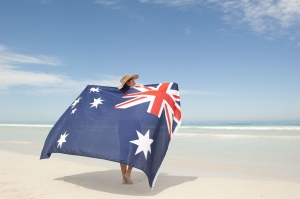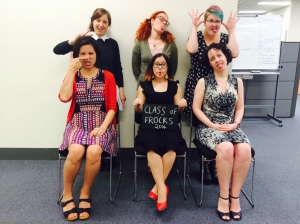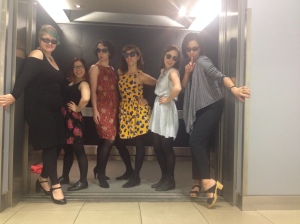
As a non-resident of Scotland I don’t have a vote, but my accent is enough to prompt discussions about the referendum with almost everyone I meet. Among my friends – Scottish, English and Australian – there are representatives of both sides of the debate. My Facebook feed is filled with photographs of YES posters in suburban windows, balanced by opinions on why Scotland can never be like Norway (and if it was, why Scots would hate having to pay a fortune for beer). It’s clear that while some are making their choice based on the facts as they see them (this is a political campaign, after all, so there has been misinformation and spin on both sides), others are following their hearts.
To vote yes or no to breaking up a union of nations is a huge decision and one that most people outside Scotland, who haven’t been exposed to the growing interest in Scottish nationalism, cannot fathom ever having to make. For Scots, however, the referendum was inevitable and in my view, it represents the greatest opportunity the country has ever had. The fact is that if the Scottish people were truly happy with the status quo, no referendum would have been called. This is a chance to start afresh, to do it our way.
Since the Thatcher years, which saw Scotland’s industries decimated and a series of hugely unpopular policies introduced, the views of the Scottish electorate have diverged sharply from those of their neighbours south of the border. It is easier to spot the Loch Ness Monster than a Scottish Tory. They are so uncommon that when the rare occasions that I meet one, I still find myself doing a double take. In the general election of 1997, not a single Scottish seat was won by the Conservatives. In each of the three elections since then, the Tories have only managed to take one seat. The Conservative share of the vote in the Scottish Parliament – elected by proportional representation – has been dropping steadily for the last few years, and the party currently holds only 15 of 129 seats.
As a result the policies of the Scottish National Party-led Scottish Parliament and its counterpart at Westminster are also wildly different. The powers given to the Scottish Parliament on its formation in 1999 have given the Scots an opportunity to show how they would like things to be, albeit in a limited way. The strong support for the SNP (even prior to the referendum being called) suggests that Scots’ priorities are very different to those of their southern neighbours. University tuition for Scottish students is free; students south of the border pay thousands of pounds for a degree. In Scotland, there is a commitment to free universal healthcare including free prescriptions; in England the National Health Service is being systematically dismantled and a packet of pills will cost you eight pounds. Westminster is happy to have nuclear submarines stationed on the Clyde; the SNP have pledged to remove them. To paraphrase one of the many memes circulating online this week, the yes camp might not be sure of what it’s running towards, but it knows exactly what it’s running away from.
This increasing disparity, combined with a strong sense of patriotism, has undoubtedly added momentum to the yes campaign. There are still many questions about what independence would mean that have not been – and perhaps cannot be – fully answered, but there is undoubtedly a growing sense that Scotland is different, and needs more control over its own destiny. Few in the no camp would be likely to refuse the carrot of additional powers now being dangled by Westminster in the form of ‘devo max’, should independence not be achieved.
And whatever happens, this referendum can only be good for politics. Scotland, a nation which could have been excused for becoming apathetic, having repeatedly voted for one government but received another, thanks to the way British elections are run, has had its interest in politics reignited. Ninety-seven per cent of the adult population have registered to vote in the referendum, some 300,000 more than were registered for the last Westminster election, and turnout is expected to be extremely high. Among the 97 per cent are many 16 and 17-year-olds, given the opportunity to have their say for the first time. The lowering of the voting age was a smart move: it will create a generation of more politically engaged young people, who appreciate the importance of participation in political decisions.
Will Scotland be independent come Friday? Probably not. According to the latest polls, every one of the ‘don’t knows’ need to be converted to yes for that to happen. The natural tendency for many Scots to doubt their own ability may also come into play at the last minute, with some yes voters switching to what they consider the ‘safer’ no. I may not need to replace my UK passport with a Scottish one this year, but a few years from now…who knows. The genie is out of the bottle. It would take a monumental rethink on how the union is governed to lure it back in.













